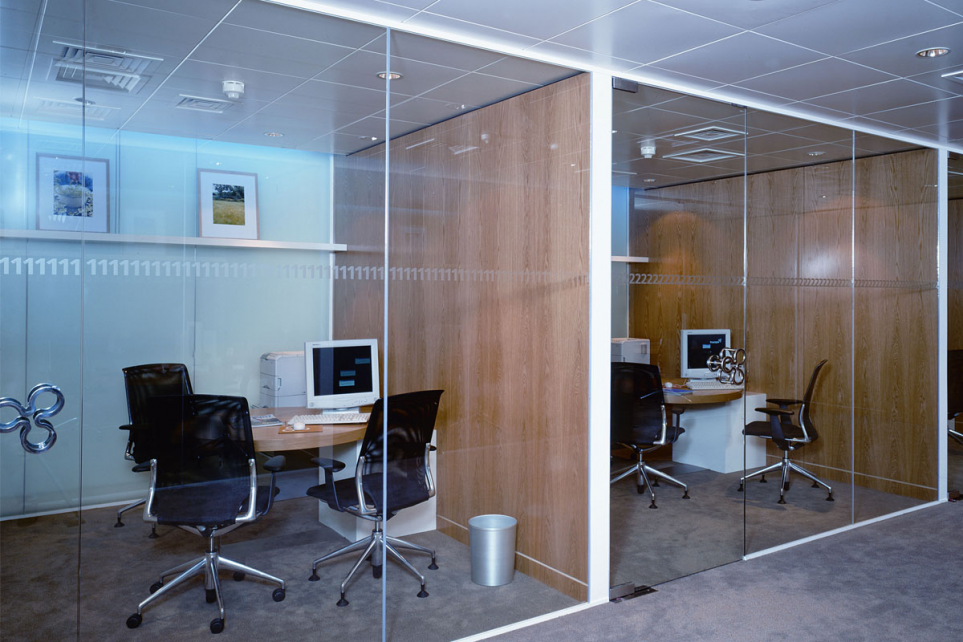Utilizing glass partitions and panels in office design is quickly becoming a go-to for modern and contemporary offices. The benefits of installing glass wall partition systems as a way to create separation in open concept office layouts are far-reaching and not only impact employee health and well-being, but also have benefits as far as sustainability, cost reduction, flexibility, and reduced maintenance.
Despite their wealth of benefits, glass wall systems come with several misconceptions that should be cleared up.
1. Easily breakable
It’s easy to see a room full of glass partitions and worry that bumping into them or worse, tripping and having to break your fall on a glass wall will cause it to shatter. But contrary to this misconception, glass walls are incredibly strong and durable, making the likelihood that they will shatter very low.
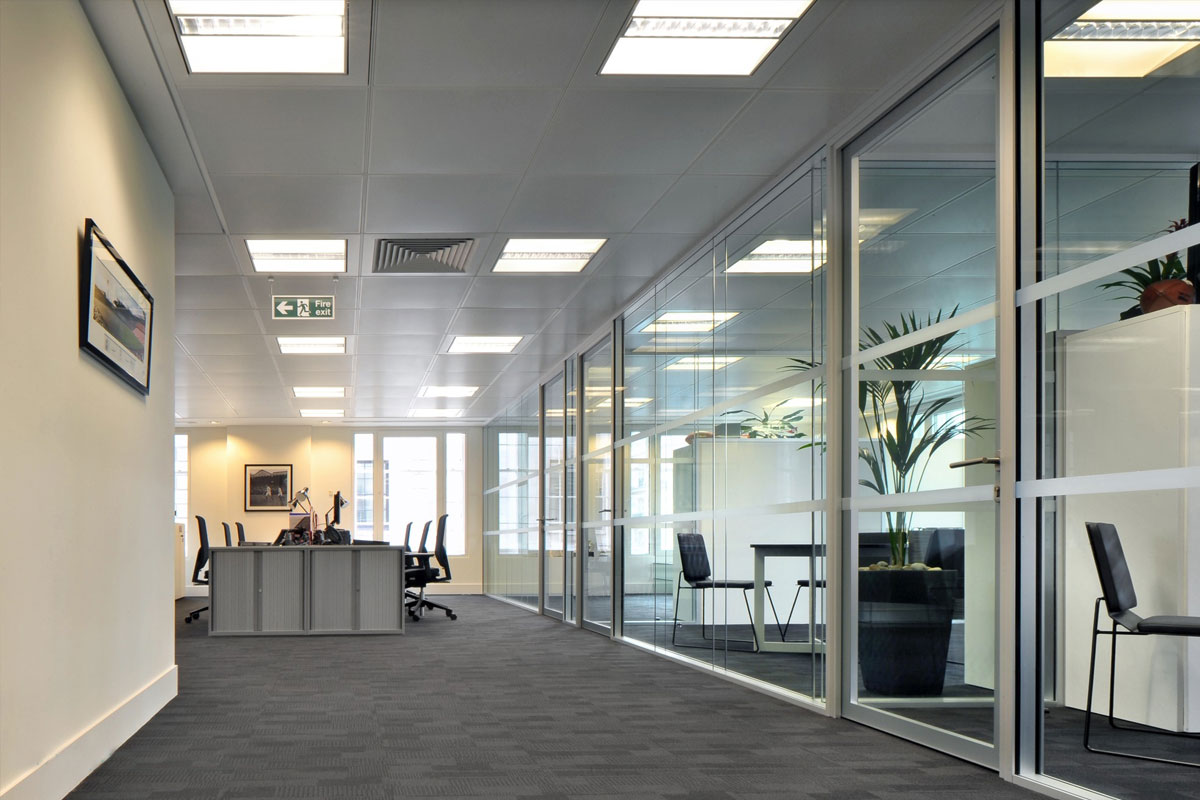
This misconception is easily addressed once you understand the type of glass used in glass wall partition systems. There are essentially three types of glass used in structures: annealed, tempered, and laminated. Annealed glass is allowed to cool slowly after formation, making it less durable and when it breaks, it is what we typically think of when we think of a broken window pane, jagged shards of glass that can cause severe injury.
Glass walls, on the other hand, are manufactured from tempered or laminated glass, both of which are much stronger than annealed glass due to the procedure of heating and cooling during manufacturing.
Annealed glass is formed and allowed to slowly cool to room temperature, whereas tempered glass is subjected to heat treatment and then rapidly cooled. This process creates glass that is four times stronger than annealed glass and that breaks into small pebbles in the event that it is shattered, eliminating the concern about glass shards that can be so dangerous.
Laminated glass is created by sandwiching a piece of plastic or polyvinyl butyral (PVB) between two panes of annealed glass. In the event that this glass would break, the glass essentially sticks to the interior plastic, preventing it from scattering.
Due to the inherent strength that results from the way tempered and laminated glass is manufactured, the likelihood of them breaking is incredibly low.
2. Lack of visual privacy
Another perceived problem with glass walls is that they create a lack of visual privacy in an office design. On the contrary, glass walls provide lots of options that allow the level of privacy to be customized to each individual office’s needs and they allow for incredible design flexibility.
Integrated blinds
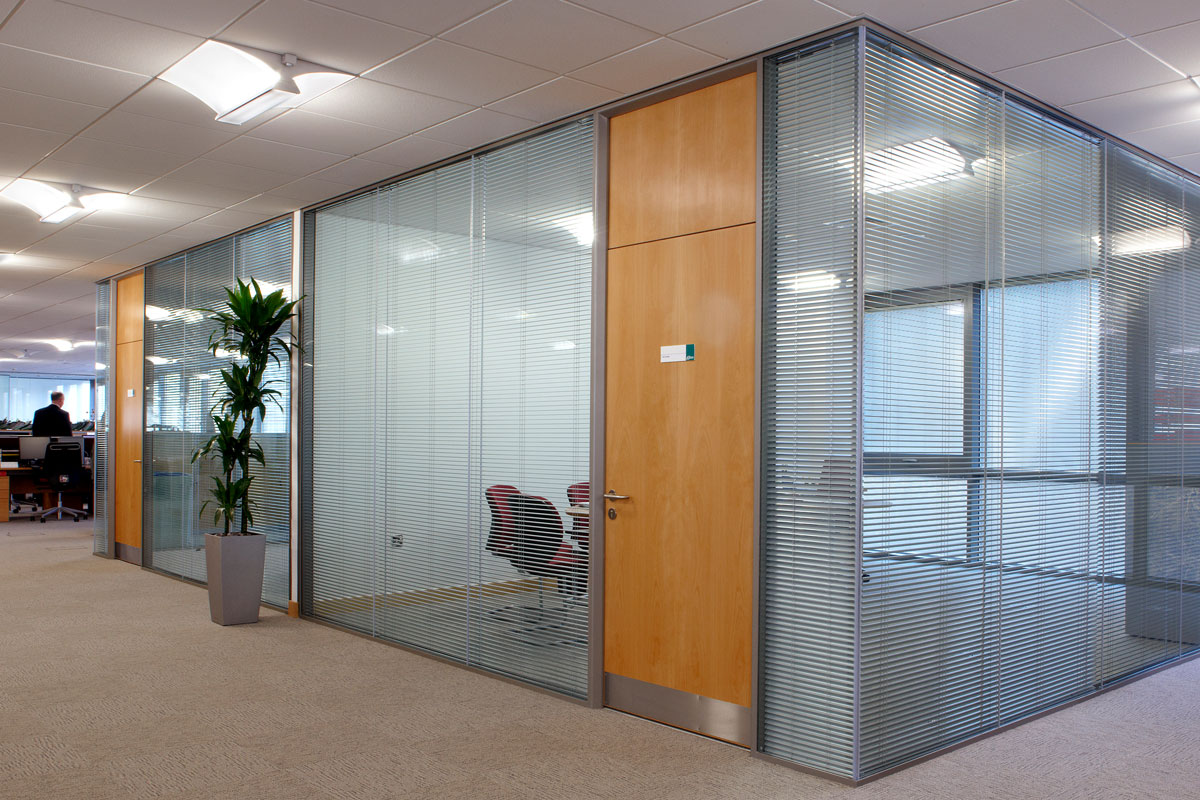
One option for interior glass walls is choosing a double glazed wall that allows for integrated blinds. Double glazing is two panes of glass with a gap between them where blinds can be easily situated and closed quickly when privacy is needed.
Customized frosting
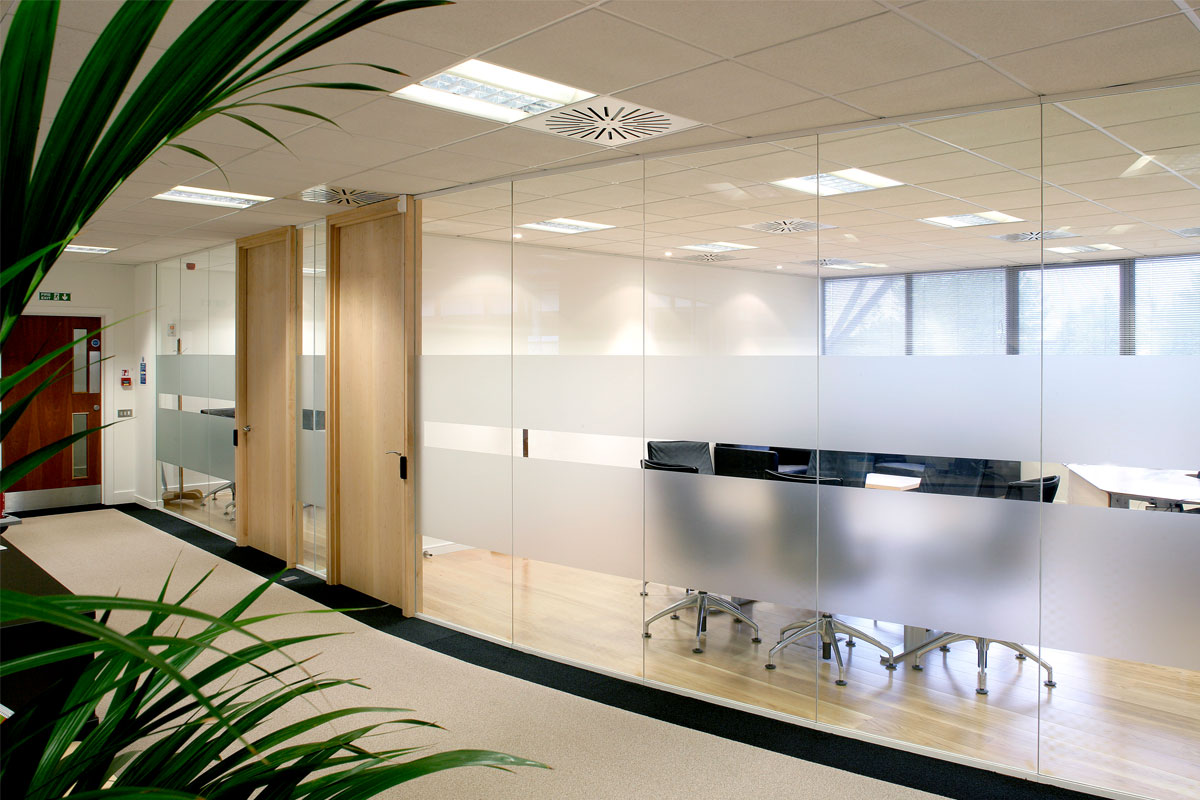
In areas where privacy is needed on a regular basis, the glass can be frosted to create visual privacy. Fully customizable, frosting can cover the entirety of the glass wall, be limited to simple strips, or include a more complex design that enhances the office aesthetic. As an added bonus, frosting can be used as a branding technique to further the office’s brand, goals, and values.
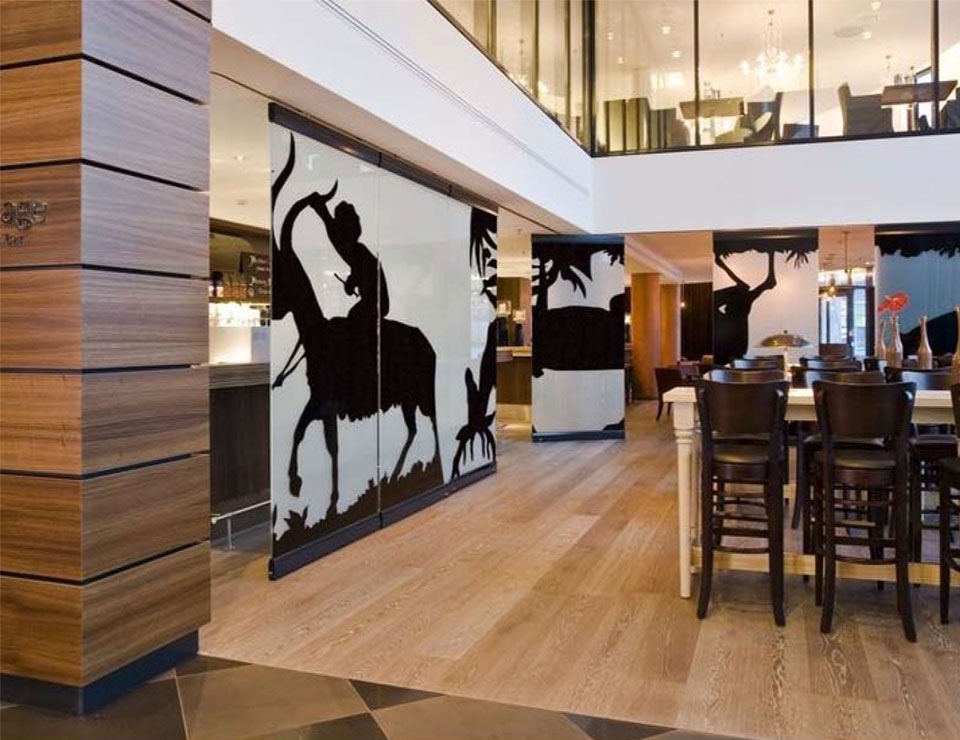
LCD privacy smart glass
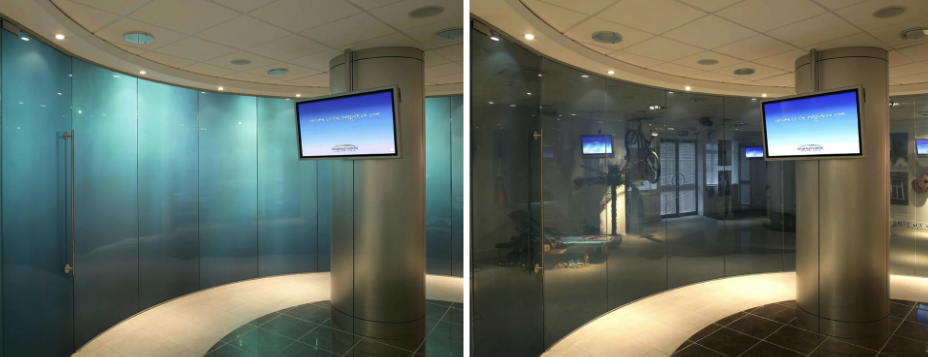
With just the flip of a switch, LCD privacy smart glass transforms from transparent to translucent in seconds, allowing for immediate privacy when needed and an open feel when it isn’t. This flexibility is perfect for conference rooms, small meeting rooms, and even individual offices.
3. Lack of sound privacy
In an open concept office lacking any partitioning system, sound privacy can become an issue. Voices can overlap while on important calls, the sound of a private meeting can carry into adjacent areas, and noise levels can hinder concentration. Some believe that a problem with glass walls is that they will not provide the sound privacy necessary to conduct business in an office environment. This is yet another misconception.
Both single glazed and double glazed partition systems provide the sound privacy needed to conduct business efficiently. Double glazed partition systems even provide the acoustic rating of a solid wall, eliminating sound privacy concerns while encompassing all of the benefits of a glass wall, namely light flow and style.

Adding doors, whether hinged or pivot, sliding, assisted close, barn door, or automatic, can also increase the level of sound privacy available in an office.
4. People will run into them
While this is a valid concern and potential problem with glass walls, steps can be taken to create a glass wall partition system that is defined by framed glass, customized frosting and designs, integrated blinds, and clearly delineated traffic patterns. These strategies all but eliminate the concern of people running into the glass partition walls.
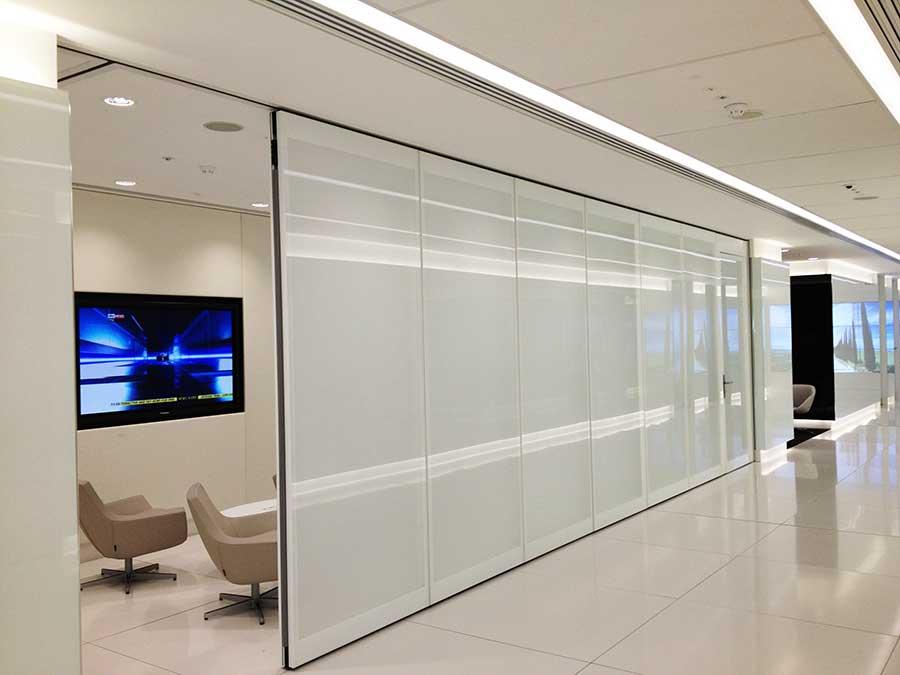
The benefits far outweigh concerns

Glass wall partitioning systems are flexible, customizable, allow natural light to flood the interior of the office, and are sustainable as they can be reconfigured when needed and recycled when their lifespan has run out. The majority of perceived problems with glass walls are misconceptions that are easily addressed.
They can be customized to provide visual and sound privacy, they require less maintenance than traditional drywall and are much stronger than annealed glass, all but eliminating concerns about breakage and the dangers associated with it.
Glass walls systems create a modern office space with integrated flexibility that encourages collaboration and employee well-being as well as being a sustainable and environmentally friendly design choice.

